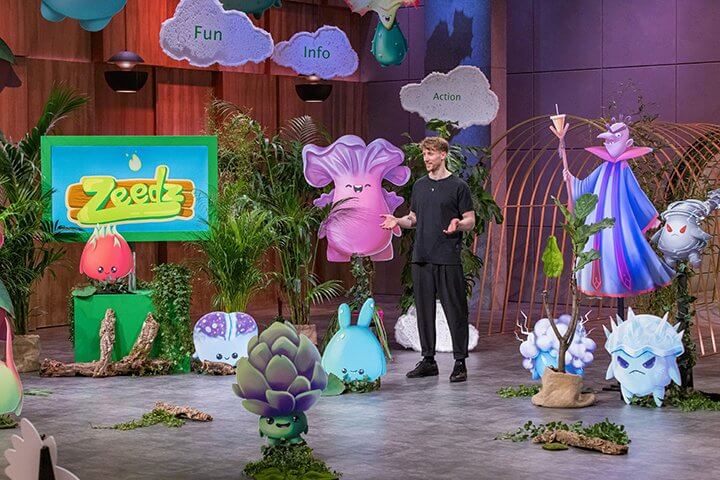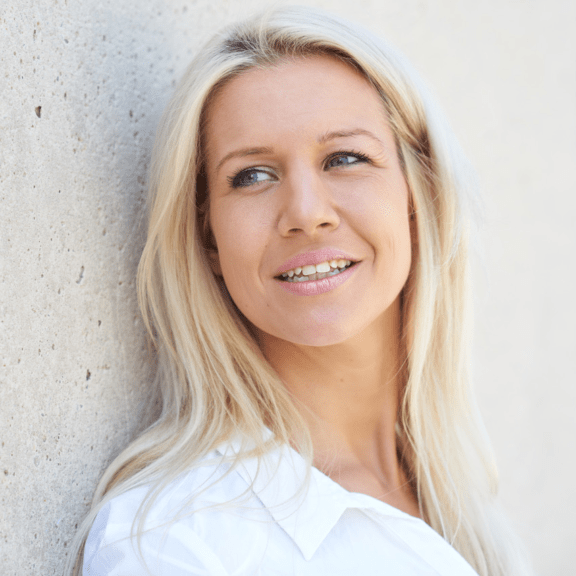Zeedz: Why games are all about numbers #DHDL
The current season of "Die Höhle der Löwen" came to a brilliant conclusion with a mega deal for "Zeedz". And this despite the fact that investments in a game are considered quite difficult and many investors rule them out completely. What is so special here that everything seems to be different?
Donnerstag,
19.10.2023

Founder Sven actually had a difficult project ahead of him. He came into the cave with a business model that many investors actually exclude per se: a mobile game. In addition, Ralf Dümmel was a lion who avowedly does not invest in apps and software, even though he once announced that this might happen again sometime, which Tillmann Schulz immediately reminded him of.
To make matters worse, the lions already recognised the theme from the backdrop before the founder entered and sounded a little sceptical as to whether they would simply be presented with the next game here. No question, if an investment were to be made at all, it would have to be a very special game.
But why do investors view games so critically? After all, there are also the well-known perennial favourites such as Candy Crush or Clash of Clans, which even in Germany generate billions in sales for the industry.
For most investors, who sometimes reject investments in games out of hand, the incalculability is the big problem: a few games become incredibly successful, but the vast majority hardly recoup the development and marketing costs. Since people are notoriously fickle, it is also almost impossible to predict which game concept could inspire the masses, which will get a small but at least regular circle of fans, and which will completely flop.
Before there is a certain amount of data, it is unfortunately also extremely difficult to judge. After all, the success of a game depends on far more than its pure user numbers. Most successful mobile games today are free-to-play, which means you can play without paying anything at first. They are monetised through in-app purchases, i.e. small individual purchases that users make during the game. These can be ways to shorten the waiting time for the next step in the game or to buy certain virtual goods that promise advantages in the game. In order to judge how successful a game is, it is therefore above all decisive how many users become paying players, how often they buy, how much they then spend on average and so on. This results in a revenue structure and an average monetisation per player, which of course then has to be weighed against the acquisition and support costs again.
The crux of this whole battle of numbers: you can only really fight it well when you have already reached a certain size, i.e. when you can already measure and evaluate these numbers on a relevant scale.
Zeedz wasn’t actually ready yet, after all, when it was recorded it was still in a closed alpha version, so not yet freely accessible to everyone in the app stores. Nevertheless, founder Sven asked for 600,000 euros and offered 10% of the company to the lions in return. But the valuation discussion that some probably expected failed to materialise.
This was less due to the fact that the colourful seeds that can be planted and nurtured in the game not only simultaneously ensure that players are concerned with the environment and climate change, in which real weather phenomena affect them. Also, the fact that a certain percentage of subscriptions and in-app purchases goes to green projects is less likely to have acted as a shield against potential evaluative criticism.
Instead, the numbers came into play here, and the ones that at least the viewers got to hear were quite something: the game had already generated over 1.5 million euros in sales, even though it was not yet really on the market. The Zeedz team had managed to do this by building up a community that was already spending money on the virtual seeds before they could even play. Special editions of these game pieces called „Zeedles“ were even sold for up to € 2000.
Thus, the two founders managed to grow well with only the share capital of their company and to make their further investments from the sales until they were now even in the 7-digit range. This alone is already a remarkable success, however, one can assume that investors will have further questions about key figures even after such dream figures have been named and will want to delve deeper into the revenue structure mentioned above.
This part – insofar as it has taken place – is unfortunately withheld from the viewers in this case, but one can already deduce a lot from the few figures mentioned: The Zeedz team has understood how to create a game that excites people and to build up a community even before the launch that pays not exactly insignificant sums for purely virtual figures and goods. So there was already a certain „cult“ or „hype“ around the game, which only rarely works and cannot be offset in pure marketing money.
The founder’s background was also impressive, as he had already successfully helped to set up a company – which is known to make many investors‘ hearts beat faster.
That, together with the inspiring theme and concept, the charitable aspect of the donated proceeds and the probably still-mentioned numbers that didn’t make it into the final cut, then probably achieved what is record-breaking in the cave: on Dagmar Wöhrl’s initiative, all five lions make an offer together – including Ralf Dümmel! Each wants to „settle“ for 5%, which in total means 25% company shares for the founders instead of the planned 10%.
Nevertheless, founder Sven agrees to the lions after a phone call, and the joy is visibly great among all involved.
A game that sets out to save the climate is really not just any game. So let’s hope that this concentrated lion power will grow many zeedles and thus ensure plenty of contributions to green projects.
Photo (above): TVNOW / Bernd-Michael Maurer

Ruth Cremer
Ruth Cremer ist Mathematikerin und Beraterin sowie Hochschuldozentin auf dem Gebiet der Geschäftsmodelle, Kennzahlen und Finanzplanung. Als ehemalige Investmentmanagerin weiß sie, worauf Investoren achten und hilft auch bei der Pitch- und Dokumentenerstellung im Investitions- oder Übernahmeprozess. Seit 2017 ist sie als externe Beraterin an der Auswahl und Vorbereitung der Kandidaten in "Die Höhle der Löwen" beteiligt.
